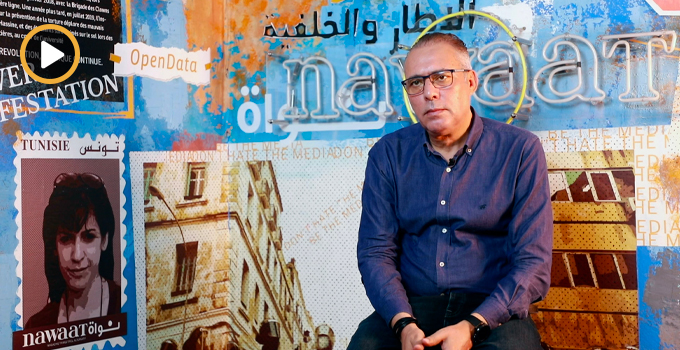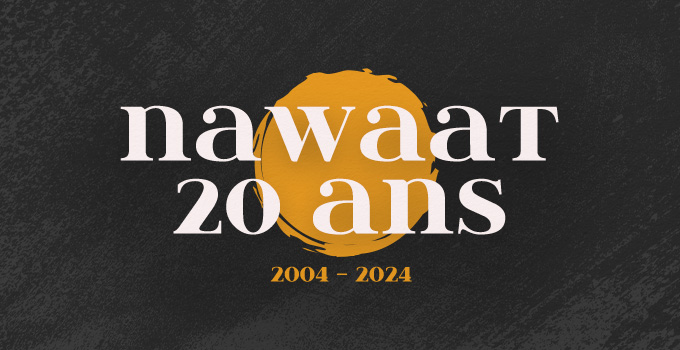
A voice in the wilderness: Fahem Boukadous in a Reporters Without Borders video.
In his daily press briefing as the U.S. State Department Spokesman, Mark Toner today addressed issues in Russia, North Korea, Iran, China, and several other places, and ended with this comment on Tunisia:
“And finally, in Tunisia, the United States is deeply concerned about the decline in political freedoms, notably severe restrictions on freedom of expression in Tunisia. In particular, we’re troubled by the recent sentencing of independent Tunisian journalist Fahem Boukadous to four years imprisonment for his coverage of protests in the Gafsa mining region of Tunisia in 2008.”
When he took questions, no reporter asked him about either Tunisia or Boukadous. That’s too bad. Tunisia in the American imagination is not much more than a sprawl of tourism. Politically, it’s an untouchable “ally” that abides by Bush-era crackdowns on all things Islamist. It’s not a democratic country. Its president, Zine el Abidine Ben Ali, is in that club of soft dictators who rule north Africa from Egypt to Morocco, ensuring, above all else, their own power.
Earlier this week, an appeals court in Tunisia upheld the criminal conviction and four-year prison sentence of Boukadous, a correspondent for the satellite television station Al-Hiwar al-Tunisi for “belonging to a criminal association.” His crime? He covered the violent labor protests in the Gafsa mining region in 2008. Boukadous couldn’t even attend the hearing: he’s in hospital, suffering from acute asthma. But it would have been no use anyway. His defense lawyers were banned from presenting their case.
Boukadous himself justifiably called the ruling a “pre-prepared political sentence issued by the court against a journalist who covered events” that were unfavorable to the government.
The Tunisia government replied with its usual blather about improvements in the country, countering that Boukadous was not a real journalist because he didn;t carry proper credentials (credentials he would have secured from the catch-22 offices of the Tunisian government), and that, in a statement from the Tunisian foreign ministry, “the American State Department spokesman should have spoken about the increasing strength of these freedoms both in writing and in practice.”
The foreign ministry must have failed to take note of the U.S. State Department’s gushing over Tunisia on its country profile page. When it comes to US-Tunisia relations, the State Department is all roses:
“The United States has very good relations with Tunisia, which date back more than 200 years. The United States has maintained official representation in Tunis almost continuously since 1795, and the American Friendship Treaty with Tunisia was signed in 1799. The two governments are not linked by security treaties, but relations have been close since Tunisia’s independence. U.S.-Tunisian relations suffered briefly after the 1985 Israeli raid on PLO headquarters in Tunis, after the 1988 Tunis assassination of PLO terrorist Abu Jihad, and in 1990 during the Gulf War. In each case, however, relations warmed again quickly, reflecting strong bilateral ties. The United States and Tunisia have an active schedule of joint military exercises. U.S. security assistance historically has played an important role in cementing relations. The U.S.-Tunisian Joint Military Commission meets annually to discuss military cooperation, Tunisia’s defense modernization program, and other security matters.”
Boukadous, in other words, doesn’t rate much higher than a passing comment in a news conference, and Mark Toner was probably glad he didn’t have to field any questions about the journalist (“what’s the United States prepared to do to secure his release?”) because he wouldn’t have had answers.
Watch a video of Boukadous’ report on the mining-region protest here, followed by an interview with Boukadous by Reporters Without Borders.




when a tin pot dictator and a princess
of darkness<> are the sole makers
of who is a journalist,a bussinessman,a
tunisian,a banker of god,a terrorist,a patriot
a whatever a sound or a cloud that traverse
the soil or sky of the enchanted land then
the god becomes absolute.
move over beethoven,sorry god you
are unemployed here in the land of enchanted
our maker operate in the palace of carthage
with a clairvoyant vision in the presence of
princess of darkness.now you are disfunctional
because you operate in a mystrious ways and
you lost the election by 99.99%.
and more you have not made women as
liberated as our visonary beloved zibla.
till we meet again under a clearer sky
my pen will not cease to spill ink in the not
so pleasant ink.
Fahem Boukadous a été arrêté ce matin
did someone give me the link where to download the documentary of FAHEM about gafsa 2008 ! thanks a lot,